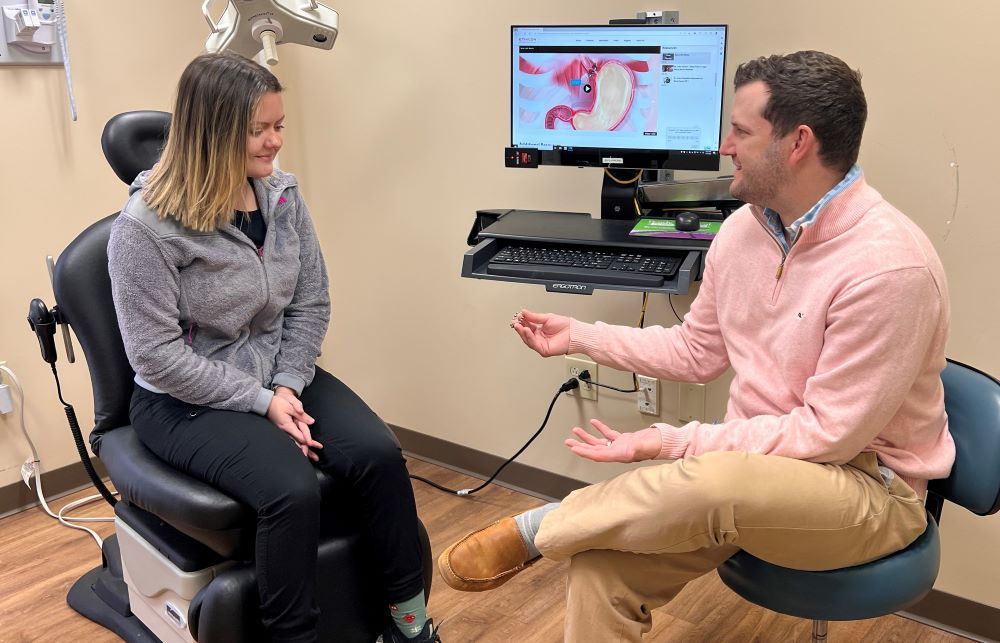Primary Care
Want to learn more about this at Kettering Health?
The holiday season is here. And with it arrives feasts of families’ favorite foods. It’s also the season for leftovers to become creative culinary concoctions, followed by the turkey-induced nap. But if you notice heartburn after a big meal or midnight snack, it could be a sign of gastroesophageal reflux disease, or GERD.
What is GERD?
“GERD is basically what we call acid reflux,” Dr. James Parker, general surgeon at Kettering Health Hamilton, says. “It’s where the stomach loses its ability to keep stomach acid within the stomach itself.”
People who often have heartburn after a meal or at night while lying in bed might not realize they’re dealing with a common chronic disease. “If you’re having heartburn symptoms,” Dr. Parker says, “that is GERD.”
They might take an over-the-counter antacid and continue with their day. But Dr. Parker explains heartburn should not be overlooked.
Dr. Parker shares that along with heartburn and general discomfort, people with GERD commonly have a hiatal hernia, where the stomach is pulled into the chest. Without medical intervention, GERD can also lead to stomach ulcers and esophageal cancer in extreme cases.
What are the treatment options?
Dr. Parker explains that even though some people might not feel it’s a problem, anyone who experiences heartburn regularly should see a doctor.
“The disease typically progresses if uncontrolled or habits haven’t changed,” he says.
Although over-the-counter medicines might help temporarily, a doctor can prescribe medicine for more long-term relief.
“They’ll start with a daily acid blocker,” Dr. Parker says. “Once it gets worse, they’ll do it twice a day; sometimes they’ll go to stronger medication.
If a patient’s GERD symptoms aren’t effectively controlled with medicine, they may be a candidate for a treatment called the LINX Reflux Management System. LINX is a magnetic band of beads surgically placed around the esophagus to help reduce symptoms of GERD.
“It [LINX] opens up every time you swallow,” Dr. Parker says, “but it stays closed with enough pressure to keep acid in the stomach.”
Dr. Parker performs the LINX procedure, which, he shares, can be easily reversed if needed.
GERD is uncomfortable, and sometimes it’s more than an annoyance. If the reflux is consistent and left untreated, it can cause damage to the esophagus. With treatments ranging from medication to minor procedures, Dr. Parker encourages those with regular heartburn to see their primary care doctor.
“It’s not something people have to live with,” he says.










